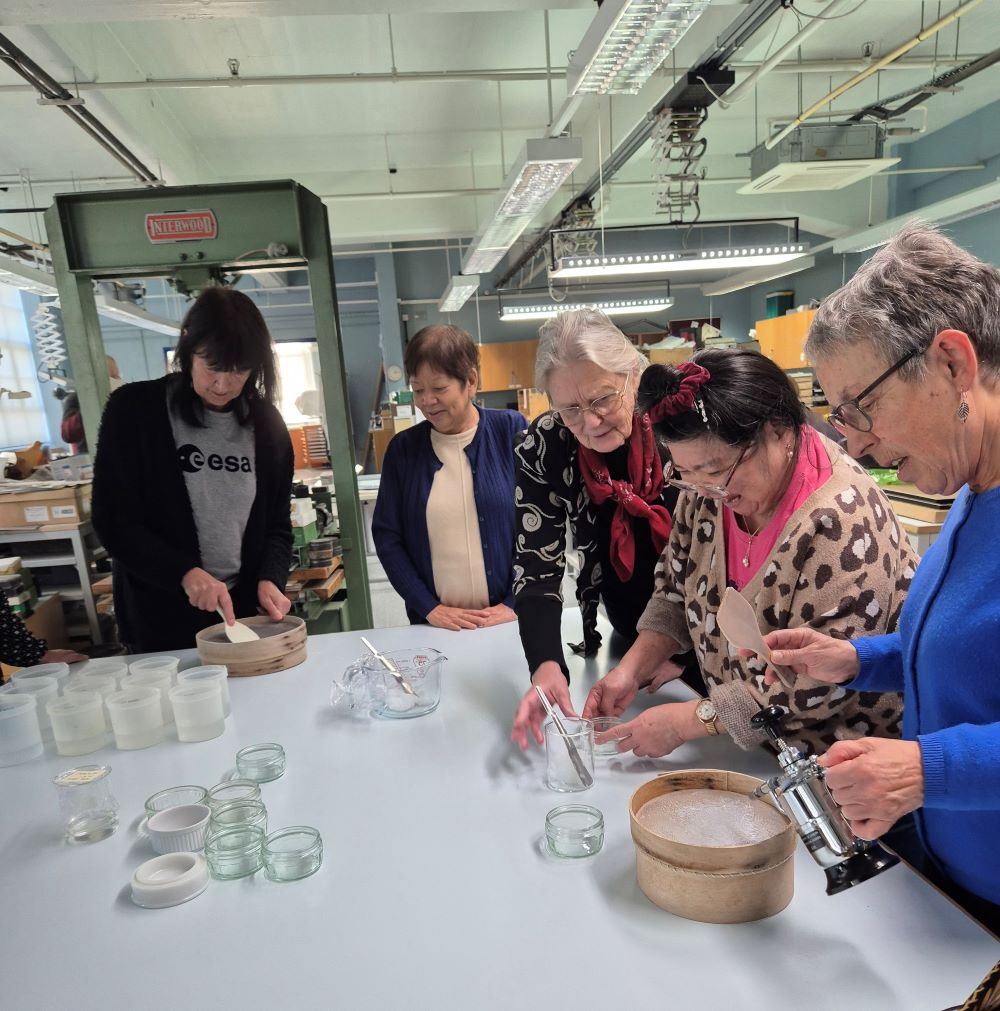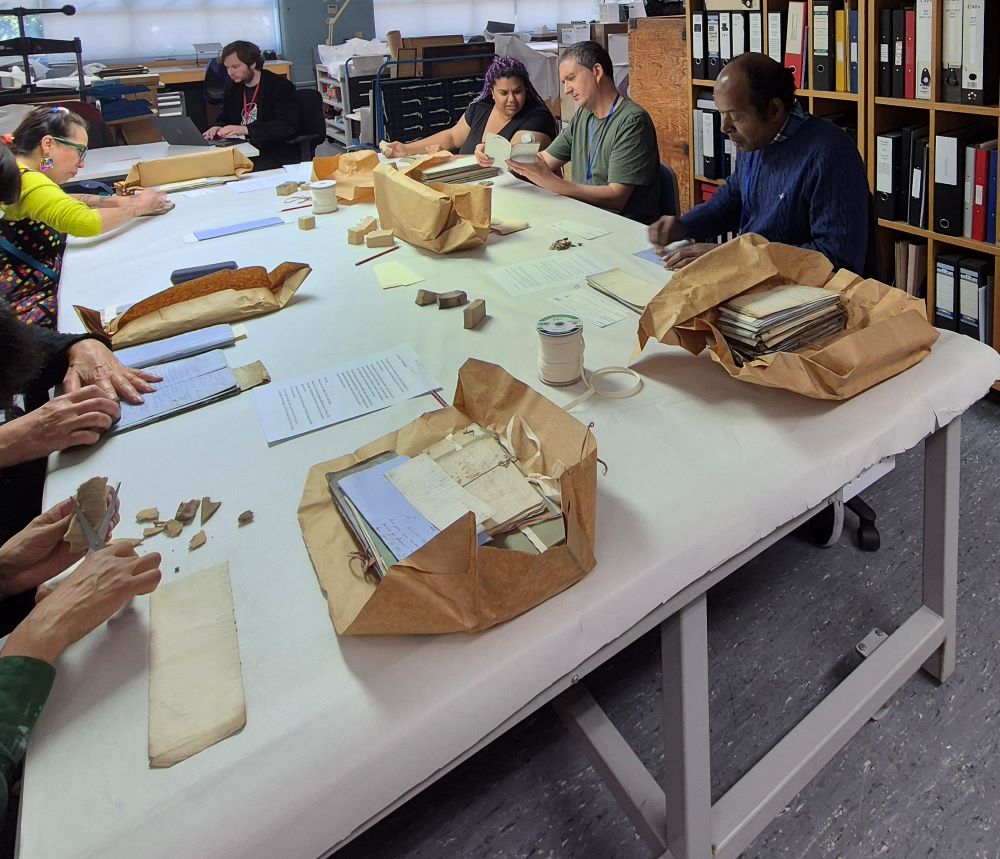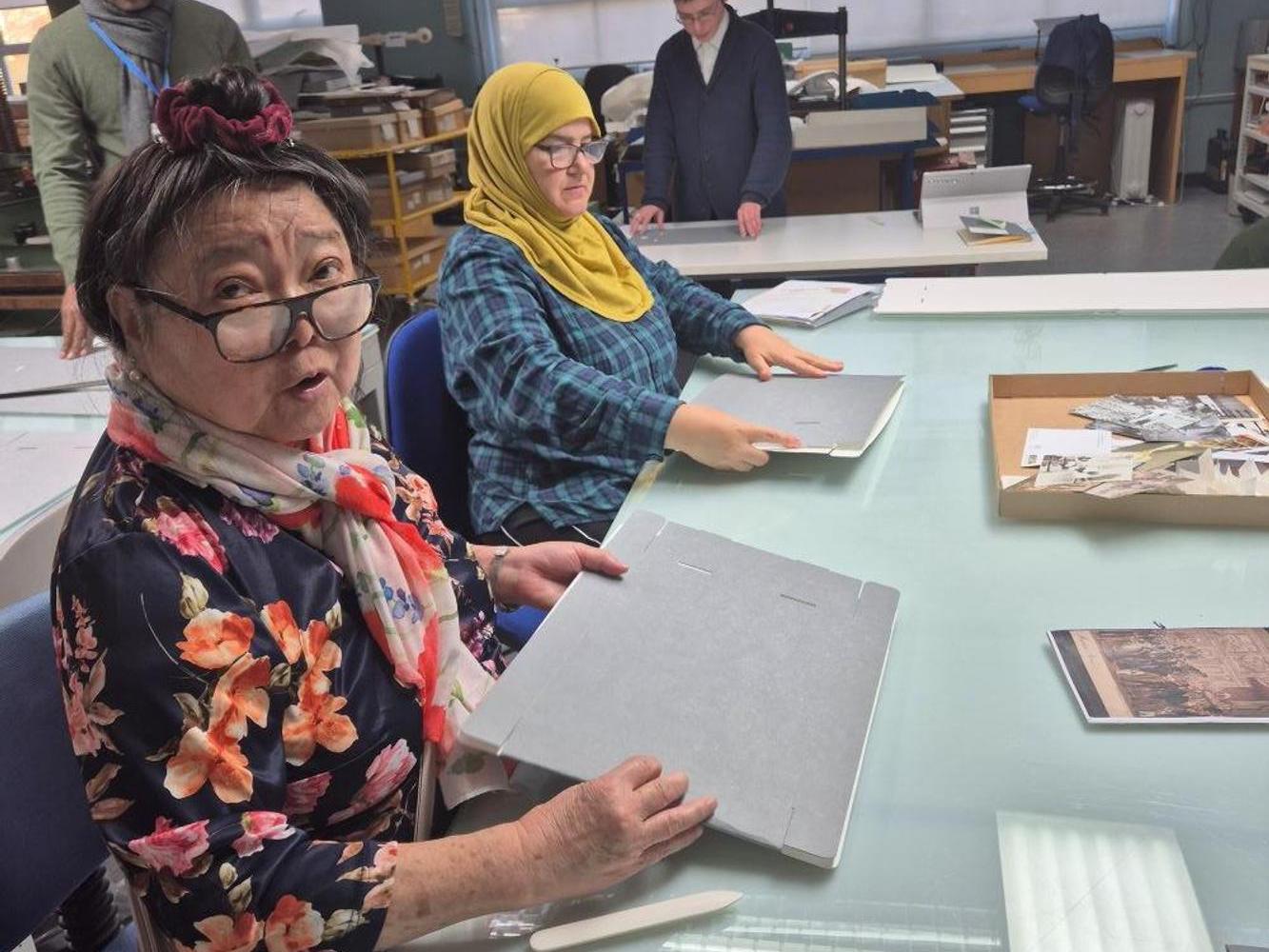The wellbeing sector is rapidly maturing and it has been amply demonstrated that when people experience heritage in an organised manner, it has a beneficial impact on mental health, particularly when participants feel part of a group.
When people are abole to connect with one another and explore their individual experiences together, the meaning and value of an activity resonations and reverberates between them, immersing the group further in their collective experience and offering the best hope of maintaining connections once a project ends.
When I was a child, my parents took me to the British Museum and Tate Gallery. I'd rather have gone swimming but tolerated the outings and from a young age, I felt comfortable looking at antique pots and classical oil paintings. It's clear, however, that this was not the case for everyone. Only about half the UK population ever visit a museum, archive or historic site and, although that figure is increasing, many people continue to feel disconnected from heritage.
About the Conservation for Wellbeing Project
The Restoration Trust (RT) - in partnership with arts and health, heritage, and social care organisations - aims to play a part in breaking down barriers to make historic environments, archaeology, museum spaces and archives more accessible, through what we call 'culture therapy'.

Conservation for Wellbeing participants learning to make paste
In September 2024, RT coordinated a series of 10 conservation workshops at The London Archives in partnership with The Stuart Low Trust, a freelance researcher and Icon. Funded by the City Bridge Foundation, these workshops built on the success of an earlier Conservation for Wellbeing (C4W) project in 2019-20. The research report (from the 2020 project) commented that:
"It was evident that developing an awareness of specialist knowledge and skills may also have contributed to increased self-esteem, as the knowledge and articles worked with were considered special, as apposed to commonplace. Participants also associated the conservation processes they had encountered throughout their lives, and indeed the need for care-taking of historic objects was linked to the need to take care of one another."
Often words and phrases were used which are notably used to reference both human and object, or both emotional and physical states:
"We had to be delicate with the stuff cause you have to wear the gloves and everything. So, in case they like fall apart... you had to be really careful even when holding it without the gloves cause you know they're so delicate... it was just that really interesting how careful you have to be. You have to treat these things like you would treat a human being basically"
(Rubenstein, 2021)

Conservation for Wellbeing participants, a Stuart Low Trust volunteer and staff cleaning documents at The London Archives
At the time of writing, a formal evaluation of the 2024 C4W workshops is still underway, but we look forward to sharing the results in a more detailed article in a future issue of Iconnect magazine.
We believe the way in which we look after and repair heritage objects has a resonance in how we look after and protect ourselves, and eachother.
Conservation for Wellbeing Network
In addition to facilitating the C4W conservation workshops, the RT has set up a Conservation for Wellbeing Community of Interest Network. An initial call-out for anyone interested in joining had a great response, with over 98 people completing the Google form. The form is still open and Icon members are welcome to join the network by completing the online form. You may also contact me directly: [email protected].
This network aims to support people who are looking to set up public engagement wellbeing events in heritage settings. We believe the way in which we look after and repair heritage objects has a resonance in how we look after and protect ourselves, and eachother.
Feedback that we have recieved at RT shows that there is an appetite amongst conservators to provide wellbeing activities, but it can be difficult to get started due to a lack of confidence or track record. Through mentoring, sharing experiences, training and exchanging ideas we want to encourage high-quality, innovative events in heritage conservation that are inclusive and accessible. We also want to highlight existing projects that are being carried out, often without much recognition, using conservation a core activity to improve and support the wellbeing of participants and staff.

The network is open to conservators, artists, archivists, museum staff, volunteers, managers - anyone interested in heritage conservation and wellbeing. Our first meeting was helf on Zoom on 22 November, which was followed by a face-to-face event at the British Library on 21 January.
